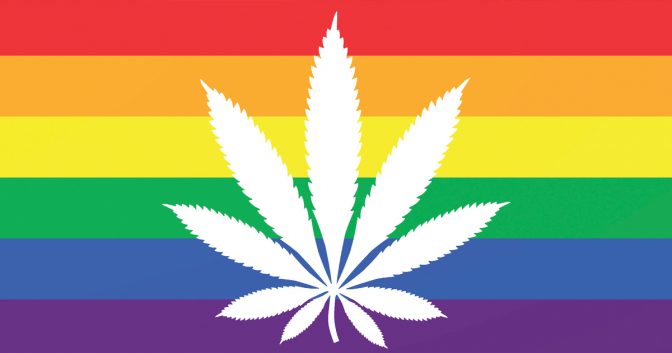Queer in Cannabis: Inclusion Is the Solution

As a queer woman from New York who’s been involved in the cannabis industry for more than three years, I’ve met dozens of LGBTQ people, ranging from millennials to baby-boomers and activists to executives. As a new industry, cannabis benefits from growing in a time where there’s more awareness of the value of diversity.
“The medical part of this industry has deep roots [in the AIDS crisis] that has been forgotten about over the decades,” says Josh Drayton, Communications and Outreach Director for the California Cannabis Industry Association (CCIA). Drayton, who started his cannabis career in Humboldt County more than a decade ago as an out gay man, helped launch CCIA’s Diversity and Inclusion program, which focuses on mentorship for underrepresented communities. He’s also worked on the launch of Sprout, an LGBT-inclusive space for the Bay Area cannabis industry.
“I started to get concerned about the lack of LGBT representation when I went to some of the Cannabis Cups,” Drayton explains, “because of the extreme white male presence and advertising geared toward heterosexual men.”
While many legal-cannabis companies have begun to focus on advertising that appeals across genders, the key to change is diverse leadership and a willingness to call out bad behavior.

ISAMARIE PÉREZ: “We share a common sense of being othered, which I think anyone in the cannabis industry can relate to on some level.”
For Isamarie Pérez, moving from the tech world into the cannabis industry was a welcome change. “It was incredibly refreshing to meet so many more LGBTQ people and business owners than I ever did in tech,” says Pérez, who’s Head of Business Development at Meadow, a cannabis software start-up backed by Y Combinator, where she he hosts free licensing workshops and panels, meets with regulators on the local and state level, and attends social-equity workshops to ensure representation within the industry for those who lack access to capital. She also advocates for LGBTQ inclusion as a speaker for Lesbians Who Tech.
“My sexuality may not be as obvious as the fact that I am a woman with brown skin,” Pérez explains. “They are very different experiences individually, yet we share a common sense of being othered, which I think anyone in the cannabis industry can relate to on some level. If we can all take a step back and realize that we’re stronger together than we are alone, the cannabis movement has the chance to be like no other industry before it.”
